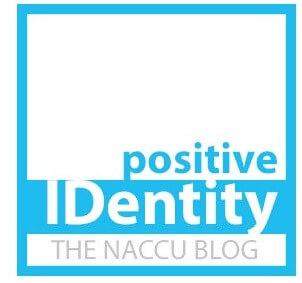Navigating Legislation: What is Changing in Campus Card and Student ID Policies
Navigating Legislation: What’s Changing in Campus Card and Student ID Policies
Card and Student ID Policies
The regulatory environment for campus credentials is shifting rapidly, and institutions across North America must stay informed to remain compliant and proactive. Several recent and pending legislative changes, both in the U.S. and Canada, are poised to directly impact campus card programs, affecting everything from card content to usage policies, funding oversight, and security practices. Here's what you need to know:
- Mental health mandates are emerging in U.S. federal legislation, requiring that campus IDs or university websites include crisis support resources such as the 988 Suicide & Crisis Lifeline and the Crisis Text Line.
- S. 3580 – Protecting Students on Campus Act of 2024
• Mandates colleges to provide resources (e.g., mental health help, Title IX guidance) via campus ID operations and orientation programs (Democracy Docket, Congress.gov, eMHIC). - Improving Mental Health Access for Students Act (Senators Kennedy & Booker; House support from Correa & Bacon) (HR 3624, S. 1924)
• Requires inclusion of 988, Crisis Text Line, and campus mental‑health center contacts on physical student IDs or websites where no ID is issued (eMHIC).
- Voter ID laws are evolving, with several U.S. states passing or proposing restrictions on the use of student IDs for voting. Some laws now prohibit student IDs as valid voter identification, while others reclassify them as secondary forms of ID or impose additional requirements.
- Indiana, Ohio, Idaho: Enacted laws prohibiting use of student IDs as valid voter identification (Voting Rights Lab).
- Kentucky SB 80 (early 2024): Removes campus IDs as primary voter ID; student IDs can only serve as secondary (AP News).
- Similar voter‑ID restrictions have been proposed or passed in Arizona, North Carolina, Tennessee, Texas, Wisconsin, South Carolina with varying degrees of restriction or requirement for added ID elements (photo, address, expiration date) (Voting Rights Lab).
- In Ontario, Canada, proposed provincial legislation (Bill 33) would place ministry oversight on ancillary fees, including those that support campus ID card programs, potentially influencing how these programs are funded and managed.
- Ontario – Bill 33 (2025): Proposes ministry oversight over ancillary fees (which include campus ID card programs); colleges/universities must detail these in reporting (cfsontario.ca).
- Campus policy updates in Canada are advancing independently of formal legislation, as institutions like City University, George Brown College, and Carleton University adopt new protocols for ID privacy, digital integration, and liability measures.
- University policies (e.g., CityU, George Brown, Carleton) are updating student‑card privacy/security guidelines, covering usage permissions, data storage, liability, and digital access—but it's internal governance rather than legislation (cityuniversity.ca).
These developments signal a pivotal moment for campus card programs. Institutions will need to adapt quickly to ensure that IDs meet evolving legal standards—particularly regarding mental health resources in the U.S. and that they account for increasing scrutiny over ID use in civic processes like voting. In Canada, while formal legislation remains limited, there is clear momentum toward modernizing internal governance for student identification systems, emphasizing digital access, privacy protections, and operational transparency.
As NACCU continues to monitor these changes, we encourage our members to stay engaged with both legislative updates and peer institutions. By understanding how federal, state, and provincial policy landscapes are evolving, campus credential programs can remain compliant, responsive, and student-centered in their delivery. These shifts are not just regulatory… they are an opportunity to reimagine the role of campus IDs as essential tools in student wellness, civic participation, and institutional accountability.
NACCU encourages all members to review the legislation and internal policies listed above and begin identifying ways their programs may need to adapt. Whether it’s adding mental health resources to ID cards, re-evaluating voter ID usability, or revisiting funding structures, being proactive will help ensure that campus card programs continue to serve students effectively, securely, and equitably.
